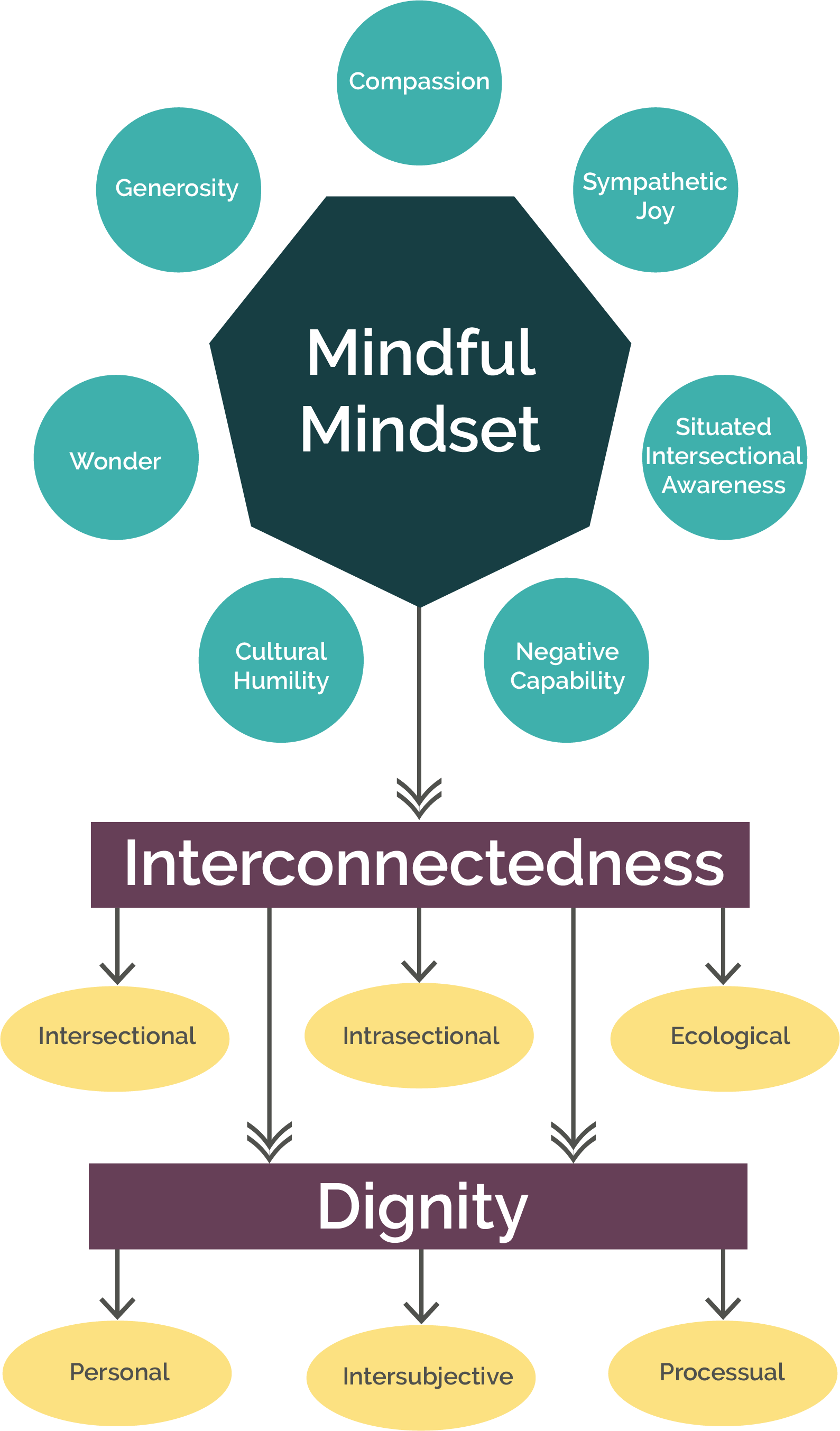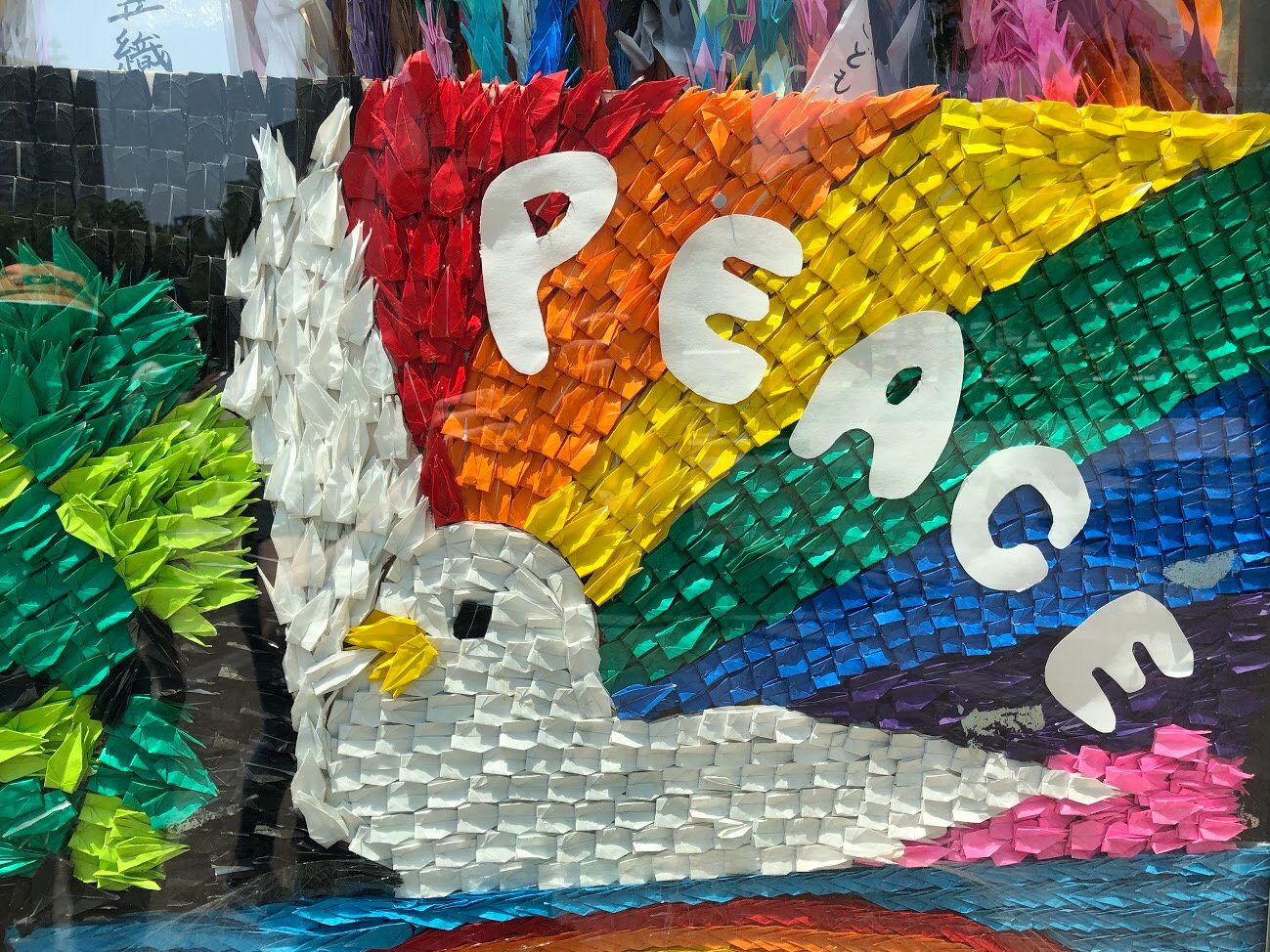Dignity bestows upon us our humanity, and is the core and defining constituent of our social interactions. I define dignity as an embodied praxis (Mahalingam, 2019). Mindful mindset is the foundation for dignity leadership. Dignity is a mindfulness thermometer or a litmus test to our commitment to engage and realize the interconnected nature of our lives mindfully (Mahalingam, 2019). There are three kinds of dignity.
Personal Dignity
The inviolable and unique aspect of our personhood. The grace with which we carry ourselves in our everyday interactions, the aesthetic quality of our being constitutes the dynamic and performative element of personal dignity.
Intersubjective Dignity
The recognition of the inviolable and unique aspects of others in all our social interactions. Treating others with respect and the recognition of their dignity, the core of humanity, especially of those laborers who are invisible (e.g., janitors, cleaners) is the critical core of processual dignity.
Processual Dignity
A commitment to preserve a dignity culture. Processual dignity is about avoiding dignity injuries and humiliation by challenging taken for granted assumptions about certain familial, institutional, or organizational practices that perpetuate dignity injuries and dignity violations.
Mindful mindset strengthens our awareness of interconnectedness and is foundational to dignity leadership. Ram defines dignity leadership as a mindful commitment to lead to preserve personal, intersubjective, and processual dignities in an organization.


Mindful Leadership
Ram Mahalingam developed a Mindful Leadership Program, an interdisciplinary leadership development program, to nurture a unique personalized vision for mindful leadership with a commitment to dignity. Mindful Mindset framework is the core feature of this program. This program draws its inspirations from performance arts (theater), life stories of global women leaders, and contemplative art and poetry. In addition to learning cutting edge research on leadership development (e.g., mindful negotiation, sustainability, creativity and innovation), participants in this program receive training on mindfulness practices and learn to use contemplative art tools, such as visual arts, poetry, creative writing, and filmmaking, as part of their personal leadership development. Mindful Leadership Program provides a wide array of tools and avenues to develop an authentic vision to successfully lead an organizational culture that promotes caring, compassion, and dignity in the workplace. Developing a caring leadership capacity to successfully lead an organization with passion, compassion, and dignity that instills trust and promotes employee well-being is the central goal of this program.

Mindful Peace Leadership
The Mindful Peace Leadership Program expands the usefulness of Dignity and Mindful Mindset framework for developing a vision for Peace Leadership where dignity, harmony between inner peace and outer peace are the pillars for developing a personal vision and praxis for a sustainable and equitable world. Drawing from contemplative (e.g., Quakers) and pacifist (e.g., Peace activists in Hiroshima and Nagasaki) perspectives, Ram Mahalingam developed a Mindful Peace Leadership program based on the experiences of atomic bombing in Japan. It is anchored on dignity, mindfulness, and generosity to engage with our inner and outer conflicts with a resolved commitment for peace, equity, and a sustainable world creatively. Developing a personal vision for peace leadership through active and engaged learning about the nuclear bombing in Hiroshima and Nagasaki and its impact on various communities of survivors — including Global Hibakusha and peace activists — is the primary goal of this program. By engaging in intense mindfulness practices and Japanese contemplative art, participants fortify a resilient commitment for harmonious peace engagement at personal and global levels.
Mindful Leader Program Press Coverage
Michigan Daily, January 2019
Barger Leadership Institute hosts poetry workshop
Michigan Daily, January 2019
Barger Leadership Institute fellows do a case study in global feminism
Thank you again for being such an inspirational and selfless professor, you have truly made an impact on me in just a few months of knowing you.
Former Student